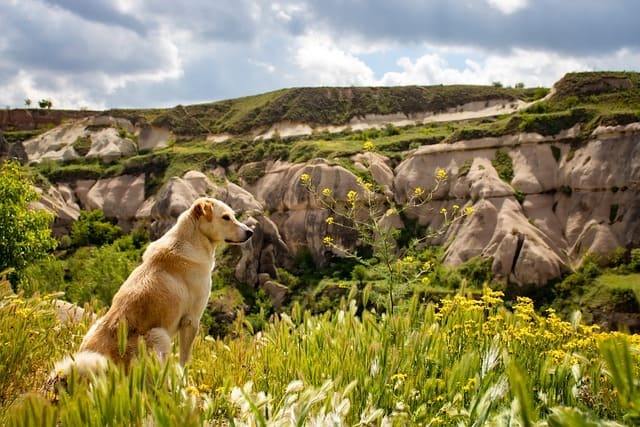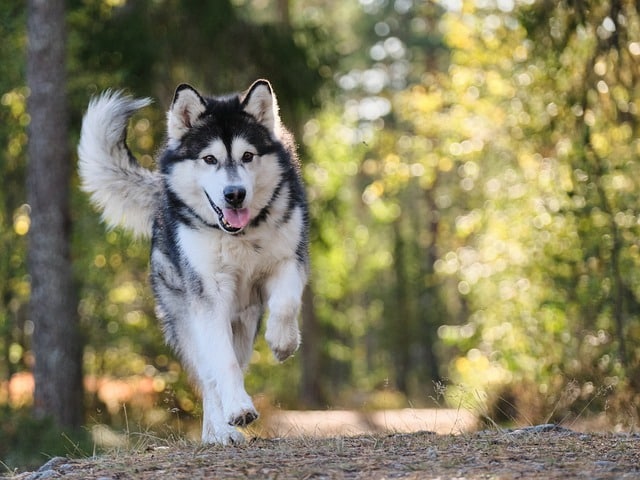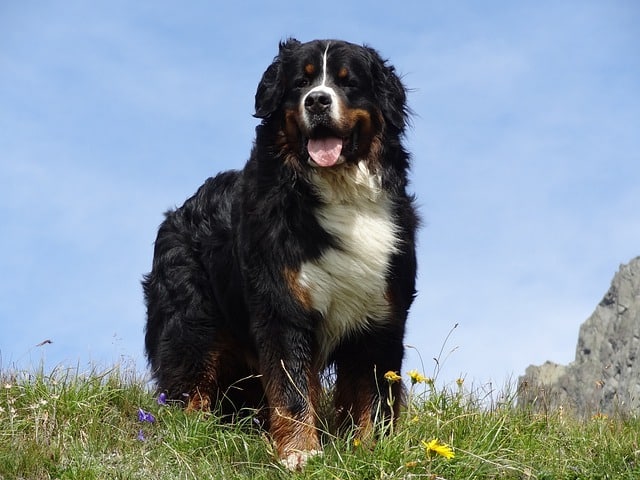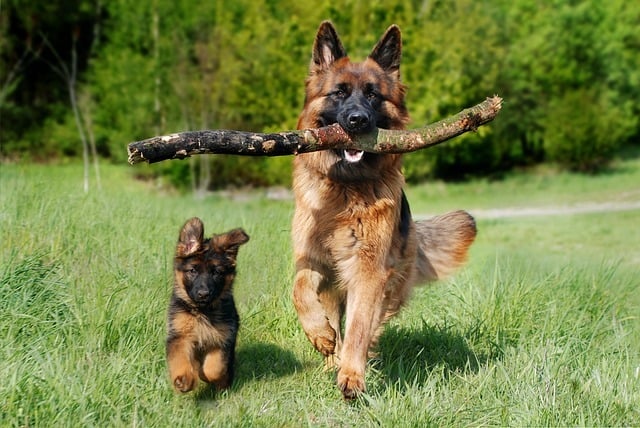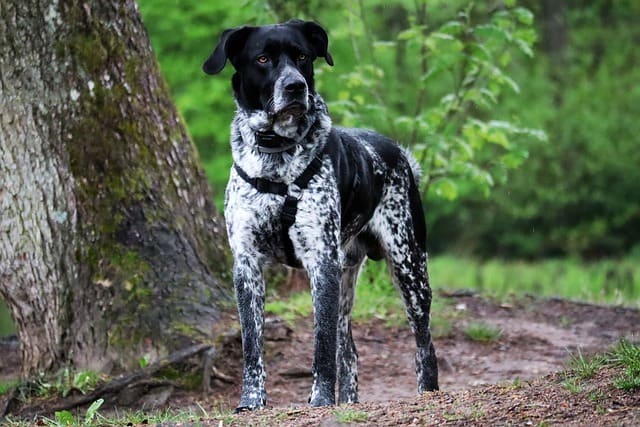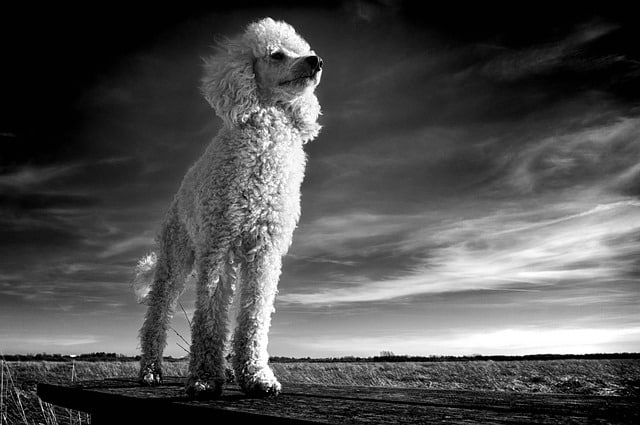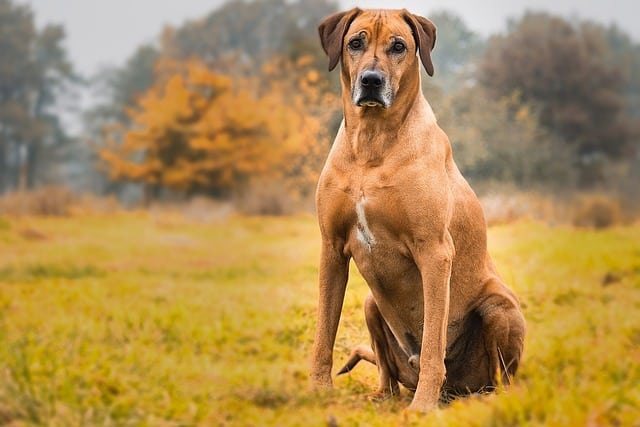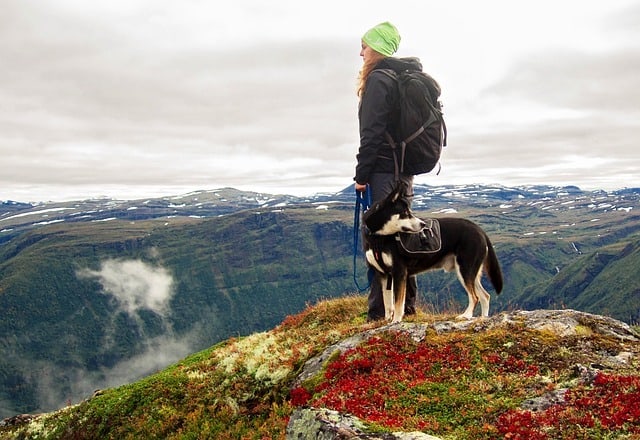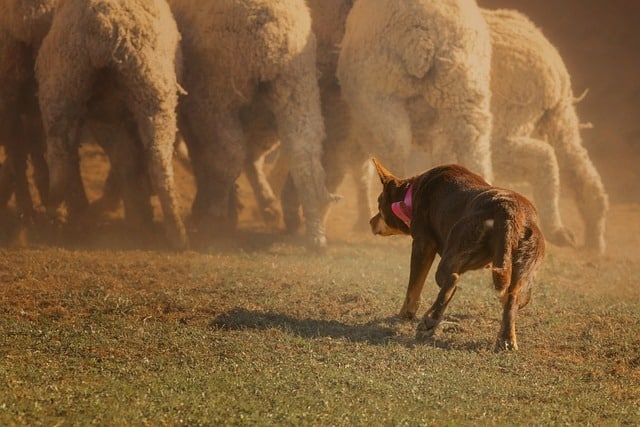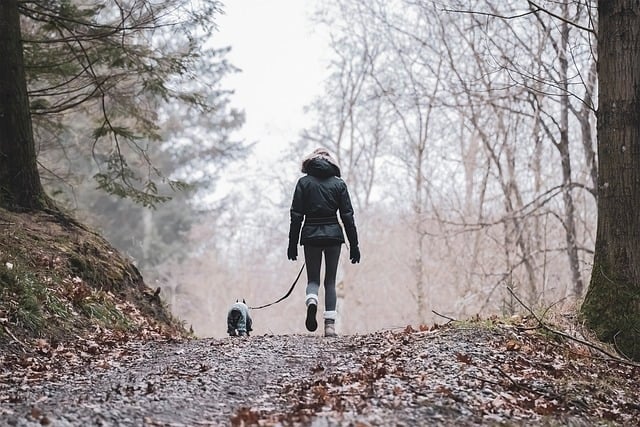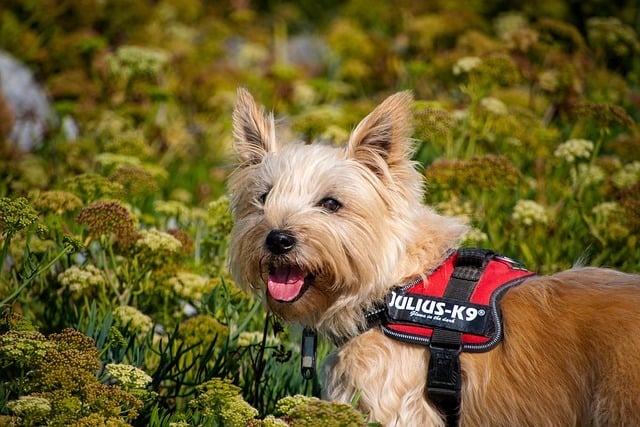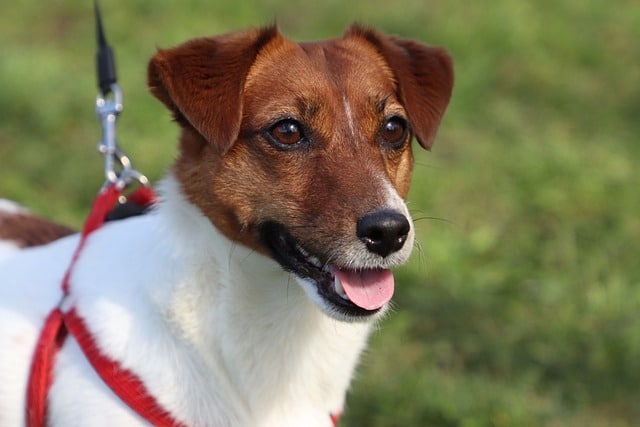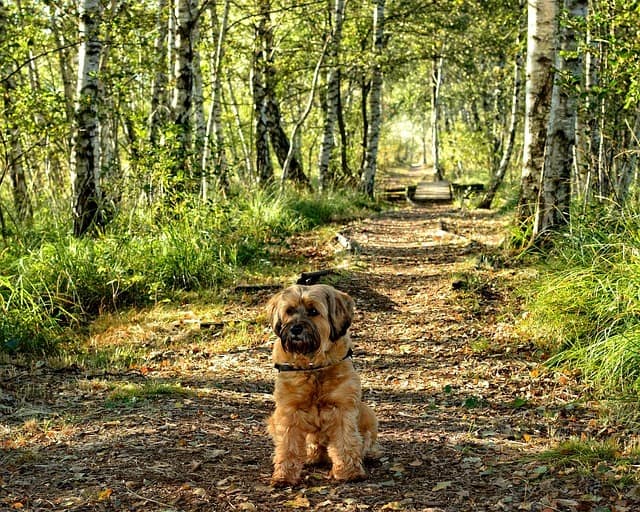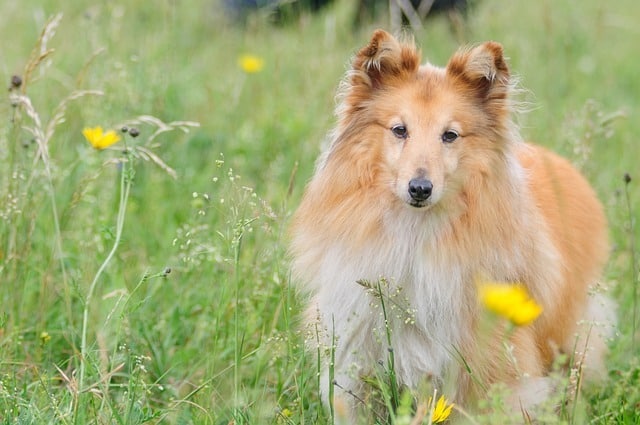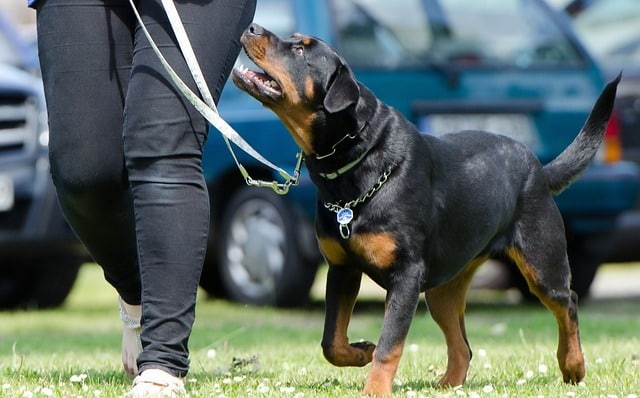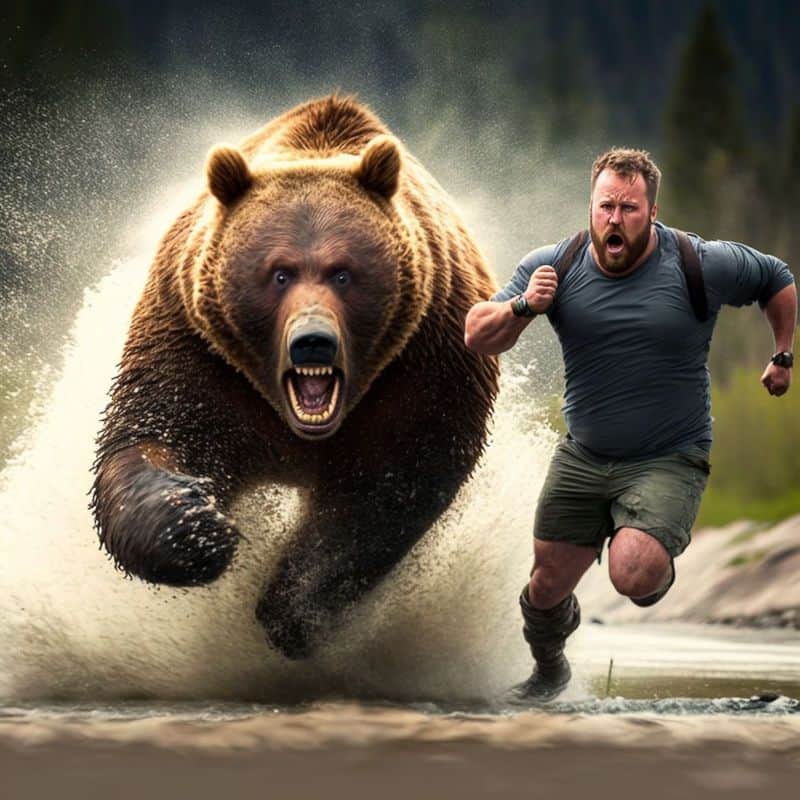Are you an outdoor enthusiast looking for the perfect canine companion to join you on your adventures? Look no further! In this blog post, we will help you discover the 22 best hiking dogs that are perfect for your outdoor adventures. From large breeds with incredible stamina to small, agile pups that can keep up with you, there’s a hiking companion for every adventurer out there. Let’s dive in and explore the world of hiking dogs together!
Short Summary
- Discover the perfect hiking companion for your outdoor adventures!
- Breeds like Alaskan Malamutes and Bernese Mountain Dogs have the strength and endurance to make them great companions.
- Mixed breed dogs offer a variety of benefits – get ready for some serious adventuring with proper obedience training, endurance building & trail etiquette!
Choosing the Perfect Hiking Companion
Finding the right hiking companion is a thrilling experience. But with so many dog breeds to choose from, how do you know which is the perfect match for your outdoor adventures?
The key lies in considering three main factors: physical abilities, temperament and trainability, and size and coat maintenance.
Physical Abilities
Strength and endurance are essential when selecting the perfect hiking dog. Canine breeds like Alaskan Malamutes, Bernese Mountain Dogs, and Australian Shepherds have been originally bred for long hours of work outdoors under various weather conditions, making them your best bet for a hiking buddy.
However, breeds like Pugs, Bulldogs, and Mastiffs are not suitable for hiking due to their sedentary nature.
Temperament & Trainability
Great hiking dogs are obedient, friendly, and easy to train. Breeds like the Bernese Mountain Dog, Australian Shepherd, and Alaskan Malamute are known for their gentle dispositions and high trainability.
However, some breeds like the Shetland Sheepdog may not be ideal for off-leash adventures due to their strong herding instincts.
Size & Coat Maintenance
The ideal size of a hiking dog depends on the length and difficulty of your hikes. Generally, dogs between 25 and 50 pounds are great for most trails.
When it comes to coat maintenance, hiking dogs usually require regular brushing and occasional baths. Long-haired dogs might need extra grooming, especially after a long hike.
Hiking Dog Comparison Table
Below are comparison tables for different sized dogs that are generally good for hiking. Of course, individual dogs’ abilities and preferences can vary significantly, even within a breed.
Large Dogs:
| Breed | Energy Level | Trainability | Terrain Suitability | Weather Adaptability |
| Labrador Retriever | High | High | Most terrains | Most weather conditions |
| German Shepherd | High | High | Most terrains | Most weather conditions |
| Golden Retriever | High | High | Most terrains | Most weather conditions |
| Siberian Husky | High | Medium | Most terrains | Cold weather (needs protection in heat) |
| Bernese Mountain Dog | Medium | High | Most terrains | Cold weather (needs protection in heat) |
| Australian Shepherd | High | High | Most terrains | Most weather conditions |
| Border Collie | High | High | Most terrains | Most weather conditions |
| Boxer | High | Medium | Most terrains | Moderate weather conditions (may struggle in extreme heat/cold) |
| Alaskan Malamute | High | Medium | Most terrains | Cold weather (needs protection in heat) |
| Weimaraner | High | High | Most terrains | Most weather conditions |
Medium Dogs:
| Breed | Energy Level | Trainability | Terrain Suitability | Weather Adaptability |
| Australian Kelpie | High | High | Most terrains | Most weather conditions |
| Shetland Sheepdog (Sheltie) | High | High | Most terrains | Most weather conditions |
| Border Terrier | High | High | Most terrains | Most weather conditions |
| Tibetan Terrier | Medium | High | Most terrains | Moderate weather conditions (may struggle in extreme heat/cold) |
| Beagle | High | Medium | Most terrains (but prone to follow scents off-trail) | Most weather conditions |
Small Dogs:
| Breed | Energy Level | Trainability | Terrain Suitability | Weather Adaptability |
| Jack Russell Terrier | High | Medium | Most terrains | Most weather conditions |
| Parson Russell Terrier | High | Medium | Most terrains | Most weather conditions |
| Pembroke Welsh Corgi | High | High | Moderate terrains (due to short legs) | Most weather conditions (but can struggle in heat) |
| Miniature Schnauzer | Medium | High | Most terrains | Most weather conditions |
| Poodle (Miniature) | High | High | Most terrains | Most weather conditions |
| Shih Tzu | Low to Medium | High | Gentle terrains | Moderate weather conditions (may struggle in heat) |
| Dachshund | Medium | Medium | Gentle terrains (due to short legs) | Moderate weather conditions (may struggle in cold) |
Large Breed Hiking Dogs
Large breed dogs can make fantastic hiking companions thanks to their strength, endurance, and friendly nature. Some of the best large breeds for outdoor adventures include the Alaskan Malamute, Bernese Mountain Dog, Australian Shepherd, German Shepherd, German Shorthaired Pointer, Labrador Retriever, Weimaraner, Vizsla, Poodle, and Rhodesian Ridgeback.
Let’s take a closer look at each of these breeds and what makes them perfect for hitting the trails.
Alaskan Malamute
The Alaskan Malamute is a powerhouse, known for its incredible strength and endurance. Originally bred to pull sleds through the freezing tundra, this breed has the stamina to be an outstanding hiking companion.
They are playful and affectionate, making them a joy to have by your side. With their high energy levels, make sure to provide plenty of water and rest in shady areas when hiking with an Alaskan Malamute in warm weather.
Bernese Mountain Dog
Gentle giants with hearts of gold, Bernese Mountain Dogs are strong, sturdy working dogs with beautiful, glossy coats. Their gentle and friendly personality makes them perfect hiking companions, always eager to make new friends on the trails.
Originally used for drafting and as drovers for cattle in the Swiss Alps, they have the strength and endurance to tackle long hikes.
Australian Shepherd
Australian Shepherds are a versatile breed that thrives on mental and physical stimulation. They are very fast, athletic, and require daily exercise to stay happy and healthy.
While they can be shy around unfamiliar faces, their loyalty and intelligence make them an excellent hiking companion.
German Shepherd
German Shepherds are a popular breed for police and military work, as well as search and rescue, thanks to their intelligence, loyalty, and bravery. They are athletic and muscular, making them well-suited for long hikes.
Their double coat requires regular brushing and grooming, making them a bit more high-maintenance than some other breeds.
German Shorthaired Pointer
Eager to please and incredibly affectionate, German Shorthaired Pointers make fantastic hiking partners. They are athletic and rarely show any behavioral problems. With their high energy levels, they require daily intense exercise to stay happy and healthy.
If you’re an active family, the German Shorthaired Pointer will fit right in as your new hiking buddy.
Labrador Retriever
Labrador Retrievers are well-behaved, highly intelligent, and water-loving dogs. They are ideal companions for active families and outdoor enthusiasts. Their water-repelling coats and need for regular exercise make them perfect for long hikes.
Keep in mind that Labradors are prone to exercise-induced collapse (EIC), so be sure to monitor their energy levels and provide plenty of water and rest during hikes.
Weimaraner
With their sleek, short coats and athletic build, Weimaraner are excellent hiking companions. They are easy-going, friendly, and highly intelligent dogs, making them easy to train.
Capable of running long distances, Weimaraner are perfect for active families with a love for the great outdoors. Just remember to provide plenty of water and rest in shady areas when hiking with this breed.
Vizsla
The Vizsla is a beautiful, athletic breed known for its incredible endurance and love for the outdoors. Originating from Hungary, the Vizsla makes an excellent hiking companion, capable of covering long distances with ease.
They are friendly, intelligent, and easy to train, making them a wonderful addition to any active family.
Poodle
Poodles are highly intelligent, active, and loyal dogs that make incredible companions. They come in three sizes: Standard, Miniature, and Toy, catering to various preferences.
Poodles excel in canine sports, including agility, obedience, and tracking, making them adaptable and perfect for hiking adventures. Their thick, curly coat requires regular grooming and trimming to keep them looking their best.
Rhodesian Ridgeback
The Rhodesian Ridgeback is a strong, agile breed, originally bred to hunt lions in Southern Africa. Their incredible endurance and speed make them great hiking partners.
They are loyal and affectionate, but be sure to properly socialize and train them, especially in regards to prey drive, to ensure they are calm around strangers and wildlife.
Medium Breed Hiking Dogs
Medium-sized dogs can also make fantastic hiking companions due to their size and agility. Some of the best medium breeds for outdoor adventures include the Australian Cattle Dog, Border Collie, Dalmatian, and Portuguese Water Dog.
These breeds are known for their incredible endurance and love for the outdoors, making them perfect partners for your hiking expeditions.
Australian Cattle Dog
Australian cattle dogs are energetic, intelligent, and loyal herding dogs originally bred to herd cattle over difficult terrain in Australia. They require plenty of physical exercise and mental stimulation, making them perfect for active hikers.
Just be sure to train them to avoid biting the ankles of fellow hikers!
Border Collie
Border Collies are known for their amazing endurance and agility, making them ideal hiking companions. They are highly intelligent, gentle, and eager to please, making them easy to train.
However, their strong herding instincts may require you to keep them on a leash when passing through fields with cattle.
Dalmatian
Dalmatians are energetic and athletic dogs, perfect for long hikes. Their short coat and slim body make them well-suited for outdoor adventures. They are incredibly loyal and can be great hiking companions without a leash.
With their playful demeanor, they are sure to make every hike a fun experience.
Portuguese Water Dog
The Portuguese Water Dog is a strong, agile breed known for its intelligence and loyalty. They were originally used for fishing and other water-related activities, making them excellent working dogs.
Their exuberant and affectionate nature makes them a joy to have by your side on the trails. Just be prepared to encounter some water along the way!
Australian Kelpie
An Australian Kelpie can make an excellent hiking companion on trails, long walks and cope well on difficult terrain.
- Energy and Stamina: Kelpies are herding dogs that have been bred to work long hours on the range in all types of conditions. They have high energy levels and exceptional stamina, which makes them ideal for long, strenuous hikes. They can handle long distances and challenging terrains.
- Intelligence and Trainability: Kelpies are very smart and easy to train. This means you can train them to follow trail etiquette, such as staying on the trail, not chasing wildlife, and responding to your commands even in a highly stimulating environment.
- Size: Kelpies are medium-sized dogs. They are large enough to handle tougher physical demands of challenging hikes, but not so large that they are prone to health problems that could inhibit their hiking ability, like some larger breeds.
- Agility: They are agile dogs, capable of maneuvering over a variety of terrains, which is a key attribute for a hiking dog.
- Adaptability: Kelpies are known for their ability to adapt to a wide range of environments, from hot and arid climates to cooler regions.
However, there are a few considerations to keep in mind:
- Kelpies need a lot of exercise and mental stimulation, even off the trail. They might not be the best choice if you live in a small apartment or can’t give them regular daily exercise.
- Due to their high energy levels and intelligence, they can get bored and frustrated easily, which may lead to destructive behaviors if not properly managed. This is where consistent training and mental stimulation comes into play.
- Despite their adaptability, like all dogs, Kelpies need protection in extreme weather conditions. For hot weather, ensure they have plenty of water and watch for signs of overheating. For cold weather, they may need a doggie jacket or other protection.
Small Breed Hiking Dogs
Don’t underestimate the hiking abilities of small dogs! Breeds like the Cairn Terrier, Jack Russell Terrier, and Rat Terrier are more than capable of joining you on the trails. These small but mighty pups have the energy, agility, and determination to tackle even the most challenging hikes.
Cairn Terrier
Cairn Terriers are small, brave, and intelligent dogs originally bred to hunt vermin. Their determination and loyalty make them fantastic hiking companions.
Although they may be small in size, their spirit and enthusiasm for adventure more than make up for it.
Jack Russell Terrier
Jack Russell Terriers are small, energetic dogs known for their intelligence and agility. They thrive on running, digging, and playing, making them perfect for long hikes.
Their loyalty and affectionate nature make them great companions on and off the trails.
Rat Terrier
Rat Terriers are small, energetic pups that were bred to hunt rats and other small game. They are incredibly loyal, intelligent, and make amazing companions.
Their agility, athleticism, and high energy make them perfect for tackling challenging hikes with ease.
Tibetan Terrier
Tibetan Terriers can also make good hiking companions, though there are some additional considerations compared to more typical “outdoor” breeds like the Australian Kelpie. Here’s a brief overview:
Positives:
- Adaptability: Originally bred in the harsh conditions of Tibet, these dogs are quite hardy and adaptable to various weather conditions, which can be a plus for hiking.
- Size: Tibetan Terriers are medium-sized dogs, a good size for handling different types of terrain without being too large or too small.
- Temperament: They are known to be good-natured, affectionate, and loyal dogs. Their eagerness to please can make them good companions on the trail.
- Endurance: They have a fair amount of endurance and can handle moderately long walks.
Considerations:
- Energy Level: While they have a good amount of energy, Tibetan Terriers are not as high-energy as some other breeds. They may not be suited for extremely long or strenuous hikes, and may prefer shorter, more relaxed outings.
- Grooming: Their long, thick coat can pick up debris on the trail and may require additional care and grooming. Depending on the weather, they can be prone to overheating, so it’s important to provide plenty of water and shade.
- Training: Like any dog, they’ll need training to ensure they can behave well on the trail, respond to commands, and not disturb wildlife or other hikers.
- Health Concerns: Tibetan Terriers, like all breeds, have certain hereditary health issues to be aware of, such as hip dysplasia and eye conditions, which could potentially affect their hiking ability.
As always, it’s important to assess the individual personality, health, and likes/dislikes of your specific dog. Not all Tibetan Terriers will necessarily enjoy hiking, even if they’re generally a breed that can handle it. Start with shorter, easier outings and see how your dog does before attempting longer or more difficult hikes. Always be mindful of their needs and safety when out on the trail.
Beagle
Beagles can be good hiking companions due to their sturdy build and energy levels, but there are several considerations to take into account.
Positives:
- Energy Levels: Beagles are energetic dogs that enjoy physical activity. A good hike can help expend some of their energy.
- Size: They are a small to medium-sized breed, which means they can handle most terrains, and they are also light enough to carry if they encounter difficulty or injury.
- Social Nature: Beagles are friendly dogs who typically get along well with people and other dogs. This can be a positive on busy trails or in camping situations.
Considerations:
- Scent Hound Traits: Beagles are scent hounds, which means they love to follow their noses. This can be a challenge when hiking because they might want to follow an interesting scent rather than stay on the trail. This trait can lead to a risk of them running off, so rigorous recall training is a must, and they may need to be kept on a leash more than other breeds.
- Noise: Beagles are known for their distinctive howl or “bay.” If they catch a scent or get excited, they can be quite noisy, which might not be appreciated by other hikers or wildlife.
- Stubbornness: Beagles can sometimes be stubborn, which could make training more of a challenge. Consistent, positive reinforcement training methods work best.
- Weather Sensitivity: Beagles do not do well in extreme weather conditions. In the heat, they can overheat, and in the cold, they may get too cold due to their short coat.
Sheltie (Shetland Sheepdog)
The Shetland Sheepdog, often referred to as a Sheltie, can make a great hiking companion. Here’s why:
Positives:
- Energy and Stamina: Shelties are an active and agile breed with plenty of energy, making them capable of handling moderate to long hikes.
- Size: They are a small to medium-sized dog, which is generally a good size for handling different terrains and being carried if needed.
- Intelligence and Trainability: Shelties are known for their intelligence and eagerness to please, making them highly trainable. This can be beneficial when teaching trail etiquette and commands.
- Herding Instincts: Their herding background means they are likely to stick close by your side on the trail, unlike some breeds that might be more prone to running off.
Considerations:
- Socialization: Shelties can be a bit reserved or shy around strangers, so they might need additional socialization to be comfortable on busier trails or around unfamiliar people and dogs.
- Noise Sensitivity: They are known to be a bit sensitive to loud noises. This might not usually be a problem on hikes, but it’s something to be aware of.
- Grooming: Shelties have a double coat that requires regular brushing to keep it free from mats and tangles. It can also pick up burrs and other debris on the trail.
- Health: Like all breeds, Shelties can be prone to certain genetic health issues (like hip dysplasia and certain eye conditions) that could potentially affect their ability to hike.
Pembroke Welsh Corgi
Pembroke Welsh Corgis can be good hiking companions, but there are a few factors to consider:
Positives:
- Energy Levels: Corgis are known for their high energy levels and enthusiasm. They are originally herding dogs, which means they’re used to being active and can handle a good amount of exercise.
- Personality: Corgis are friendly and sociable dogs, usually getting along well with people and other dogs, which can be beneficial on a busy trail.
- Trainability: Corgis are intelligent and usually responsive to training, which can be useful when learning trail etiquette.
Considerations:
- Physical Structure: Corgis have short legs and a long body, which can make it difficult for them to navigate some terrains. They might have trouble with steep, rocky, or uneven paths.
- Weight Management: Due to their structure, it’s important that Corgis maintain a healthy weight to avoid additional strain on their backs and joints. Regular exercise is good, but be careful not to overdo it.
- Health Concerns: Like many breeds, Corgis are prone to certain genetic health issues. They can be prone to hip dysplasia and other joint issues, which could potentially affect their hiking abilities. They are also prone to obesity, so it’s important to balance their food intake with their exercise level.
- Heat Sensitivity: Corgis have a thick double coat that can make them prone to overheating in hot weather, so extra care should be taken on warm days, including providing plenty of water and avoiding the hottest part of the day.
Mixed Breed Hiking Dogs
Mixed breed dogs can be just as amazing hiking companions as their purebred counterparts. They often have lower chances of developing genetic health problems and can have a wider range of skills and abilities, making them fantastic hiking partners.
Let’s explore the benefits of mixed breeds and discuss how to find the perfect match for your hiking adventures.
Benefits of Mixed Breeds
Mixed breed dogs offer several benefits, including being generally healthier than purebred dogs due to genetic diversity. They can also be easier to train and more adaptable to an owner’s activity level and lifestyle.
So, if you’re looking for a unique and healthy hiking companion, consider a mixed breed dog!
Finding the Right Match
When searching for the right mixed breed hiking dog, consider factors like size, energy level, and temperament. It’s also essential to ensure the dog has been properly socialized and trained before embarking on a hiking adventure.
With the right match, you and your mixed breed canine companion can conquer the trails together!
Training Your Hiking Dog
Proper training is essential for a safe and enjoyable hiking experience with your dog. In this section, we will discuss the importance of obedience training, building endurance, and teaching trail etiquette.
With proper preparation, you and your furry friend will be ready to tackle long hikes and explore the great outdoors together.
Obedience Training
Obedience training is crucial for your dog’s safety and enjoyment during hikes. It helps them respond to commands in distracting environments, practice recall, and have good leash manners.
Some breeds, like herding dogs, may require additional training to control their instincts while on the trail. With proper obedience training, you and your dog can confidently navigate the trails together.
Building Endurance
To build endurance for long hikes, start by gradually increasing the distance of hikes and conditioning the dog with pack training. Proper hydration and nutrition are also important for recovery, ensuring your dog has the energy and nutrients needed to tackle the next adventure.
By building endurance, your dog will be able to handle longer and more challenging hikes with ease.
Trail Etiquette
Teaching your dog proper trail etiquette is essential for a safe and enjoyable hiking experience. Train your dog to stay on the trail, not bark excessively, and respect wildlife.
Additionally, clean up after your dog to keep the trails clean and safe for other hikers and wildlife. By following proper trail etiquette, both you and your dog can enjoy the great outdoors responsibly.
Summary
Finding the perfect hiking companion involves considering factors like physical abilities, temperament, trainability, size, and coat maintenance. From large breeds like the Alaskan Malamute and Bernese Mountain Dog to smaller breeds like the Cairn Terrier and Jack Russell Terrier, there’s a hiking dog for every adventurer. Mixed breed dogs also offer unique benefits and can be great hiking partners. Proper training, building endurance, and teaching trail etiquette are essential for a safe and enjoyable hiking experience. So grab your hiking boots, find your perfect hiking dog, and hit the trails for some unforgettable outdoor adventures!
Frequently Asked Questions
What is the best dog for long walks?
If you’re looking for the perfect pup to take on long walks, look no further than these top 10 breeds! From Huskies and Retrievers to Shelties and Greyhounds, there’s a breed that will make your outdoor adventures more enjoyable.
Get ready to explore with your loyal companion!
Is an 8 mile hike too much for a dog?
So, an 8 mile hike is definitely doable for a healthy dog! Even if your pup isn’t used to long hikes, with some preparation he will be able to enjoy it and have a great time on the trail.
Let’s go explore!
What is the best dog for walking and protection?
For the best combination of walking and protection, look no further than the German Shepherd. This breed is intelligent, loyal, and an excellent guard dog. They make great hiking partners due to their obedience and athleticism.
They are also known for their strong bond with their owners, making them a great companion for long hikes. German Shepherds are also known for their courage and strength.
How far can a dog hike?
Depending on your pup’s size, health, and conditioning, a dog is usually capable of hiking between 5-30 miles in a day. If they are well trained and cared for, dogs can easily take on longer hikes without feeling too worn out.
With the right preparation and regular conditioning, your pup could be a hiking master!
Can dogs climb?
Yes, some dogs have the ability to climb trees! Catahoula Leopard Dogs, Tree Walking Coonhounds, New Guinea Singing Dogs, and Jack Russell Terriers are all breeds that possess a natural talent for scaling heights.
Even beyond these specific breeds, you can never underestimate a dog’s intelligence, strength, and resilience – they just might surprise you with their climbing skills!


